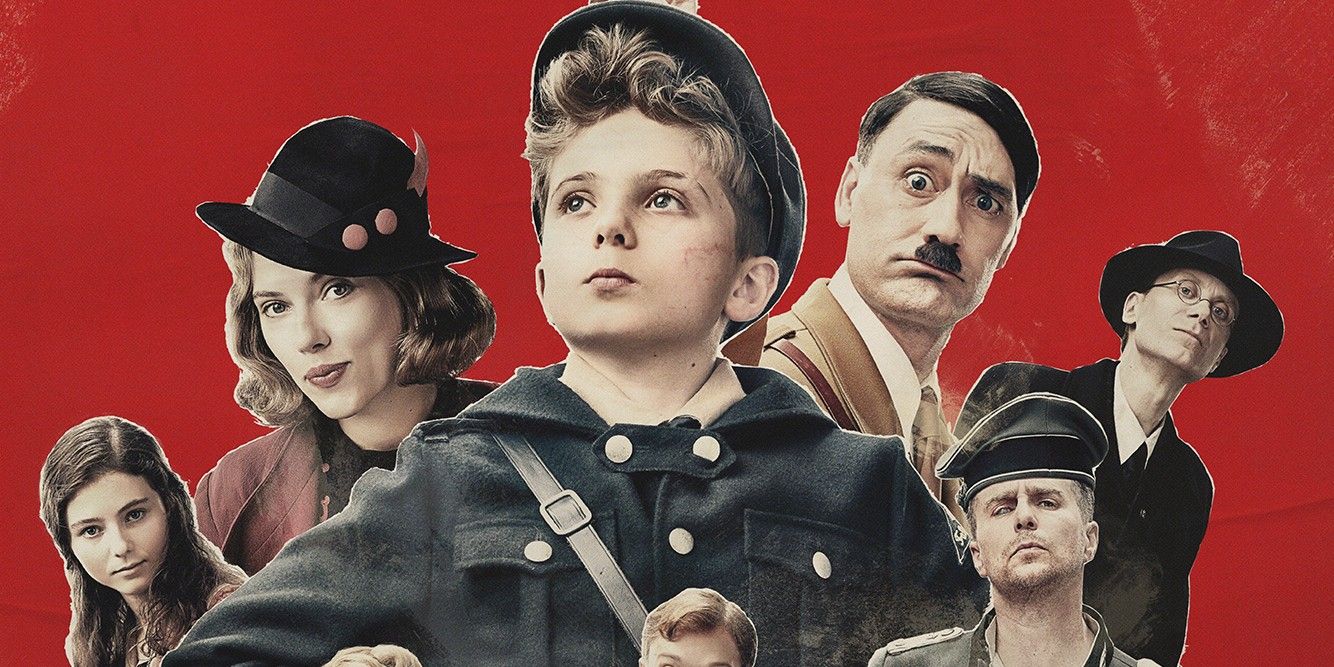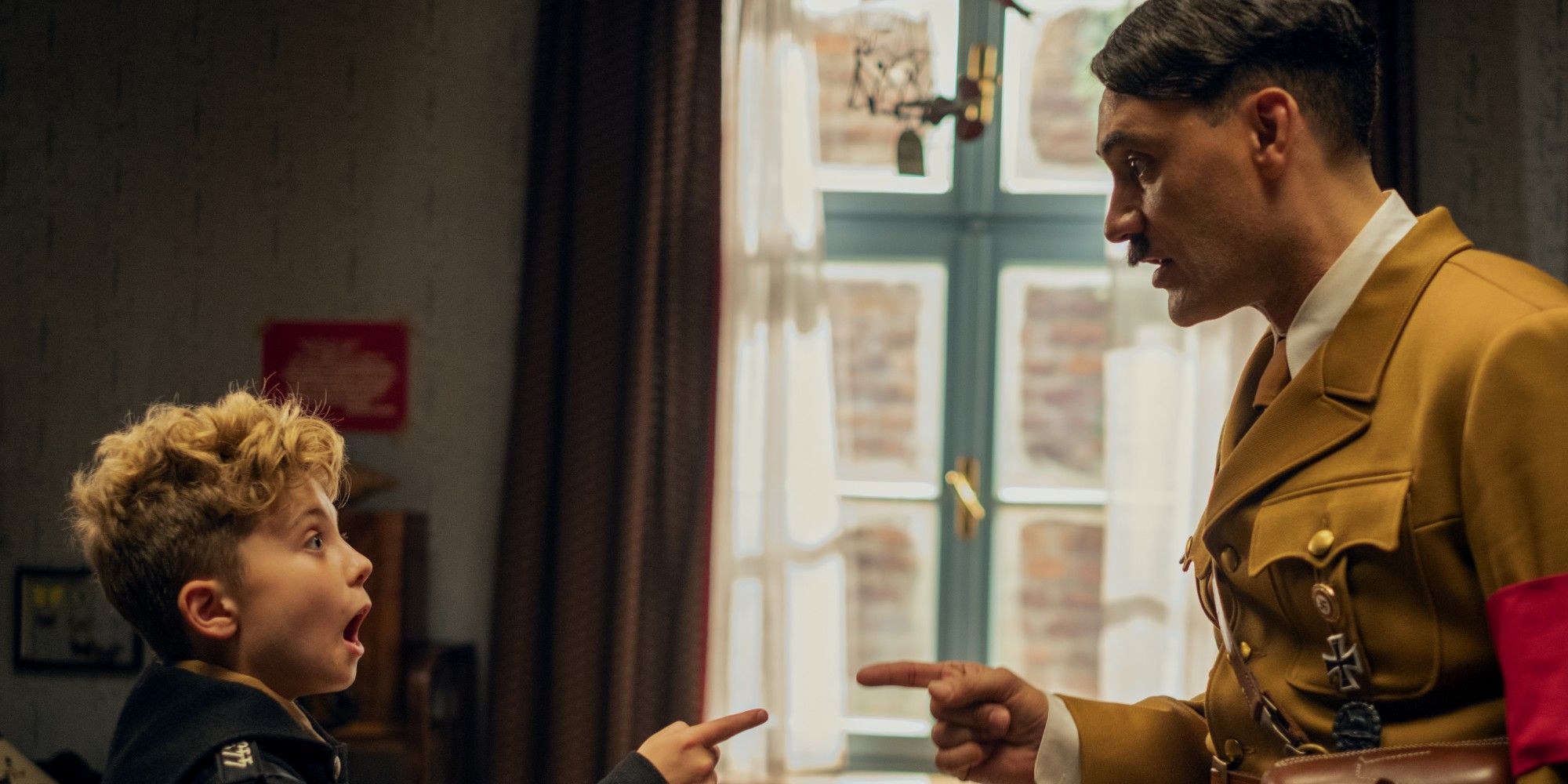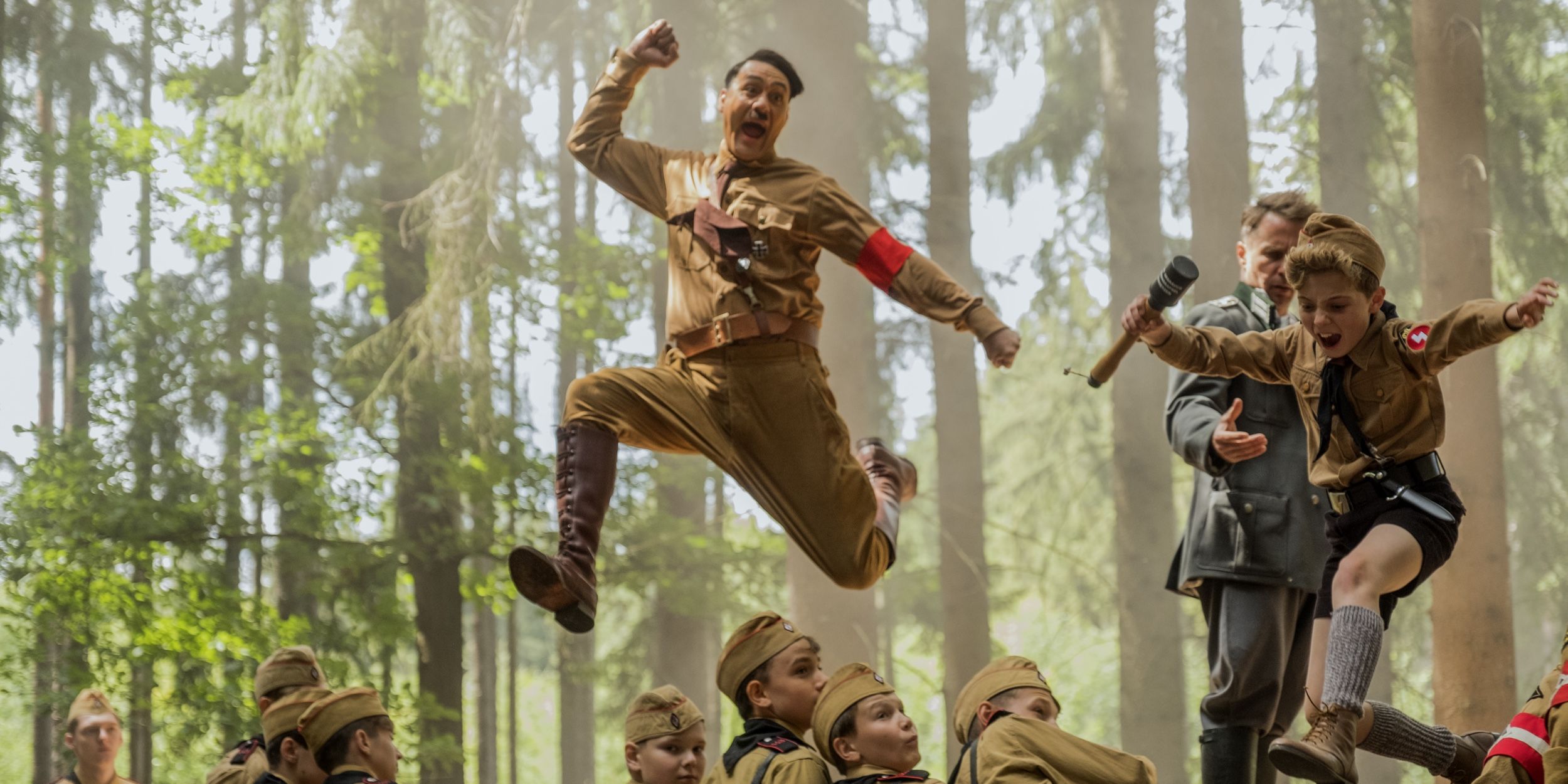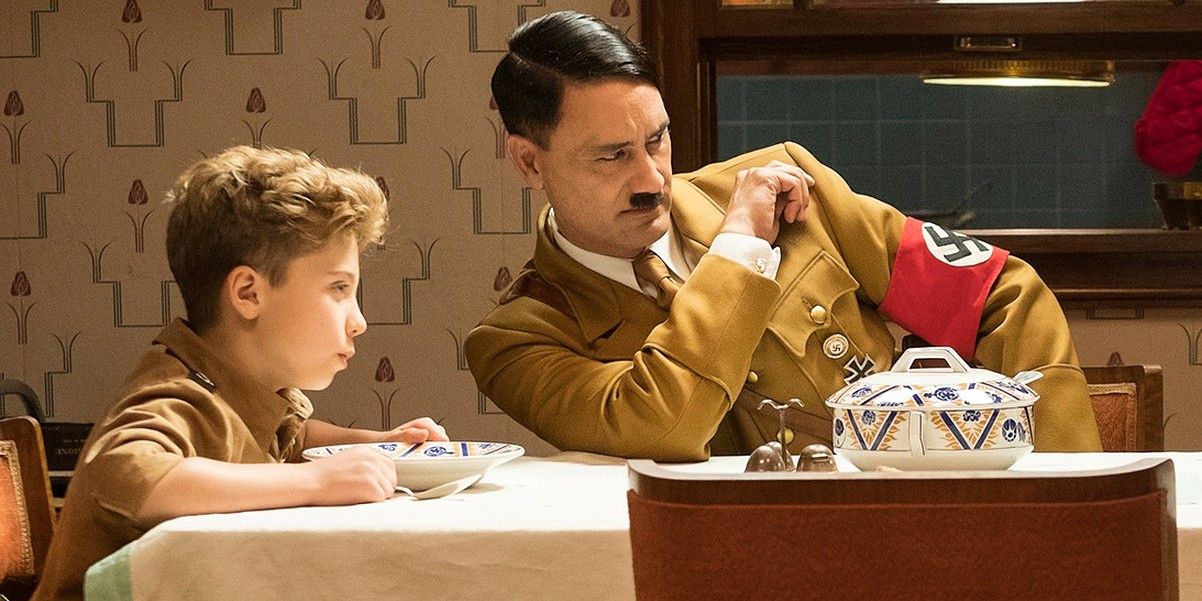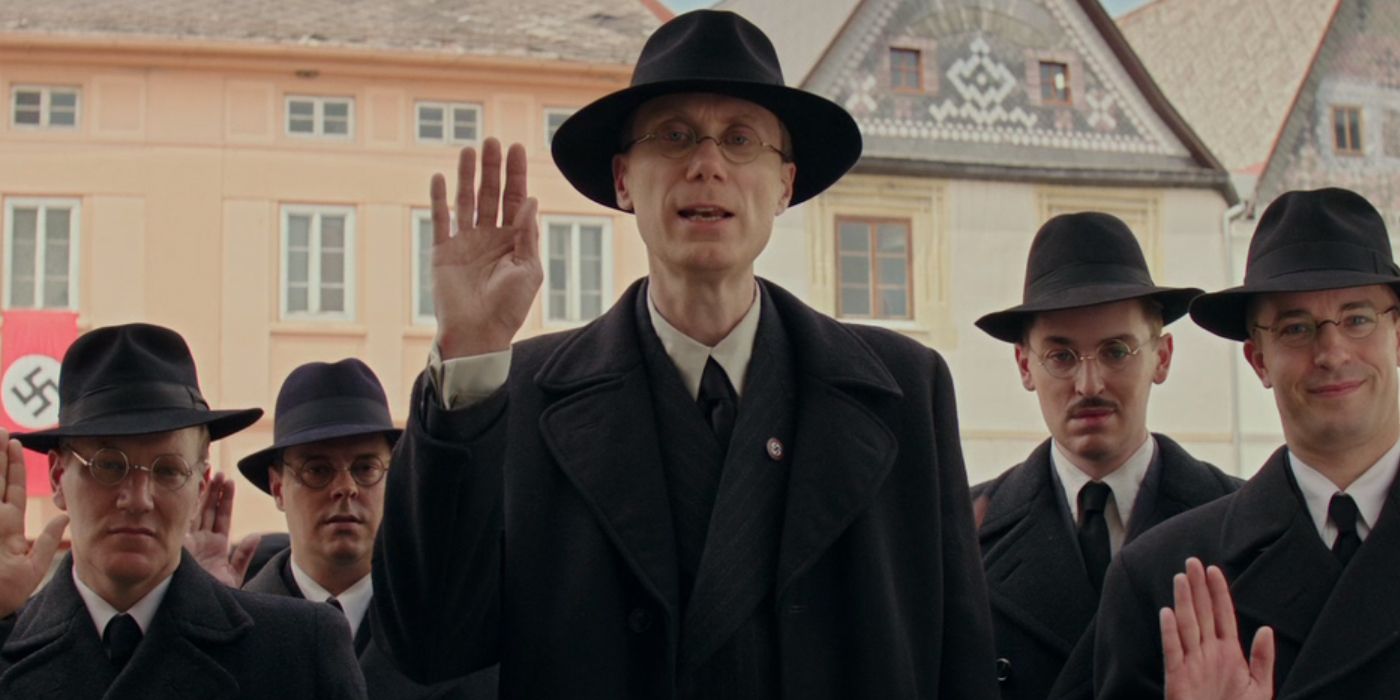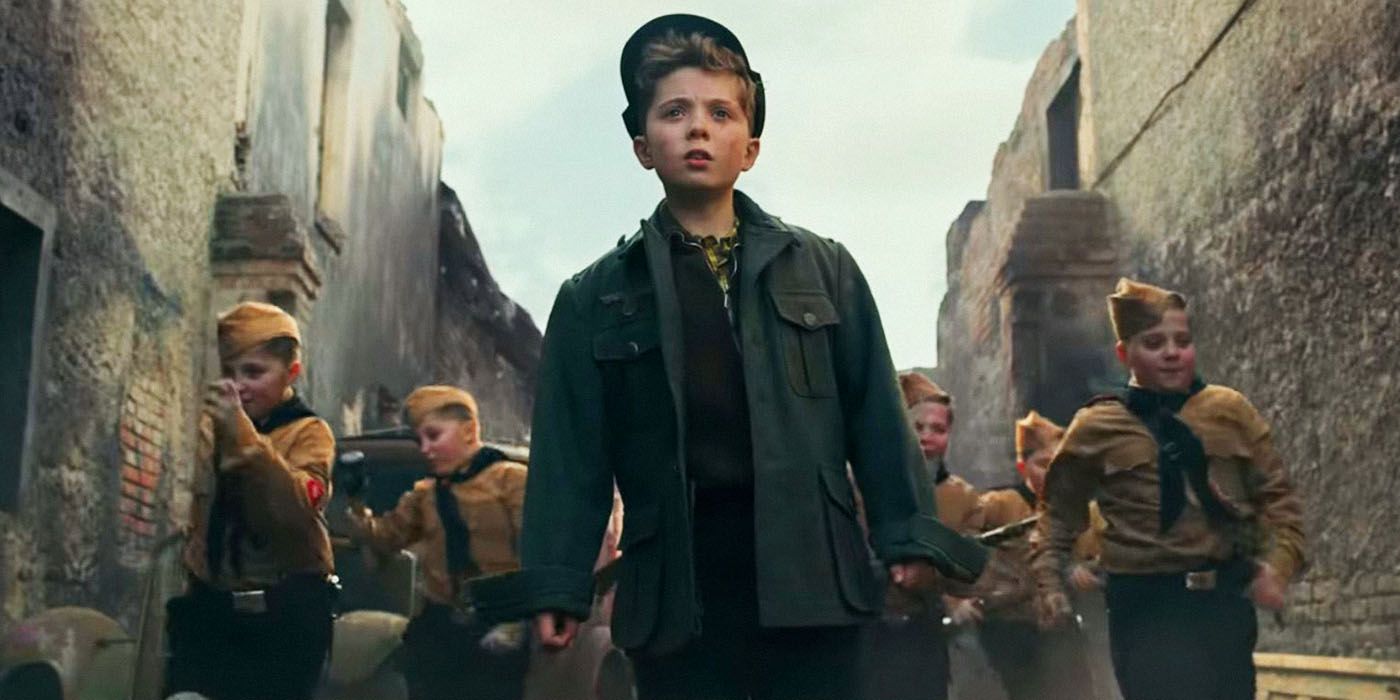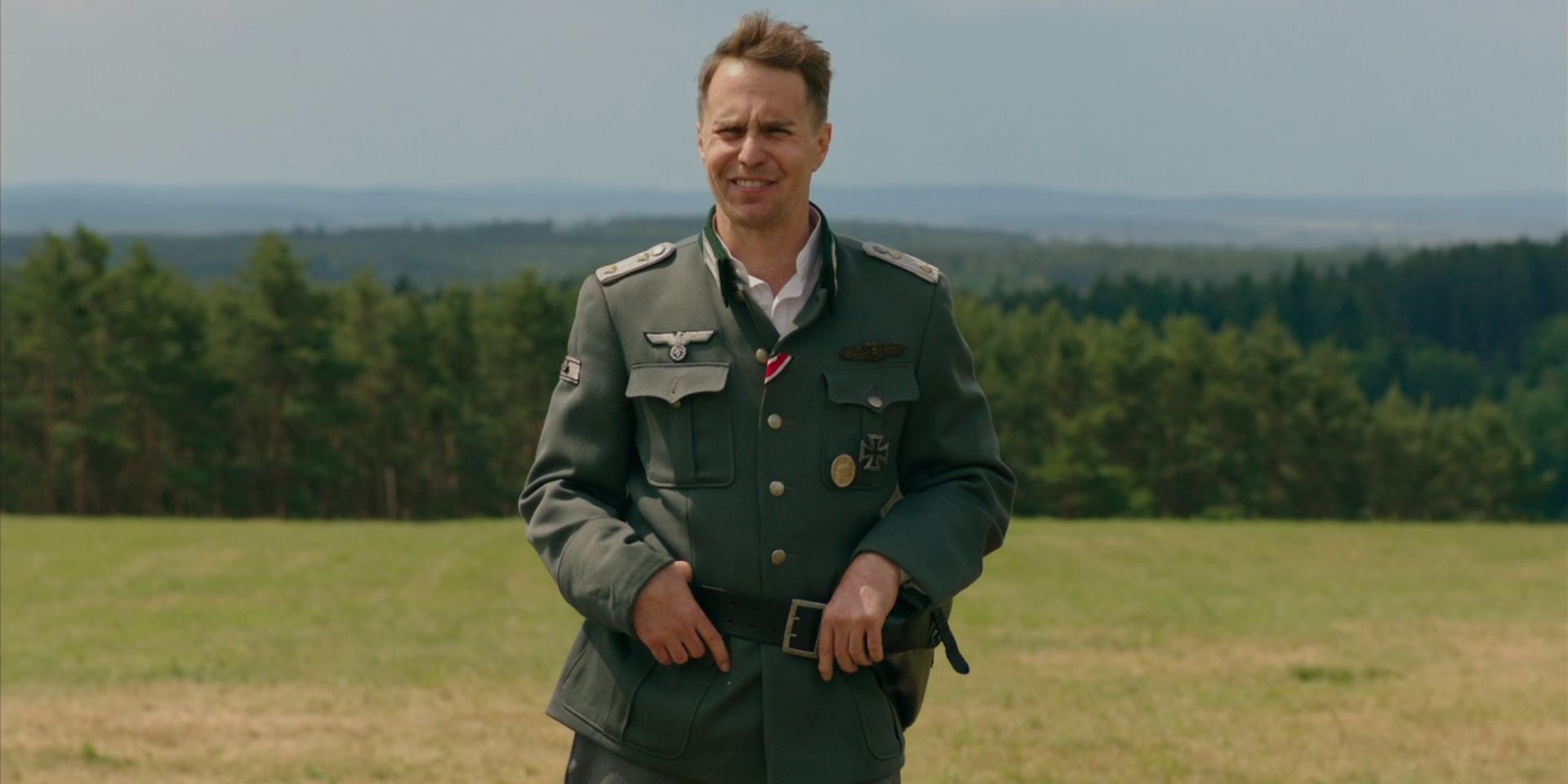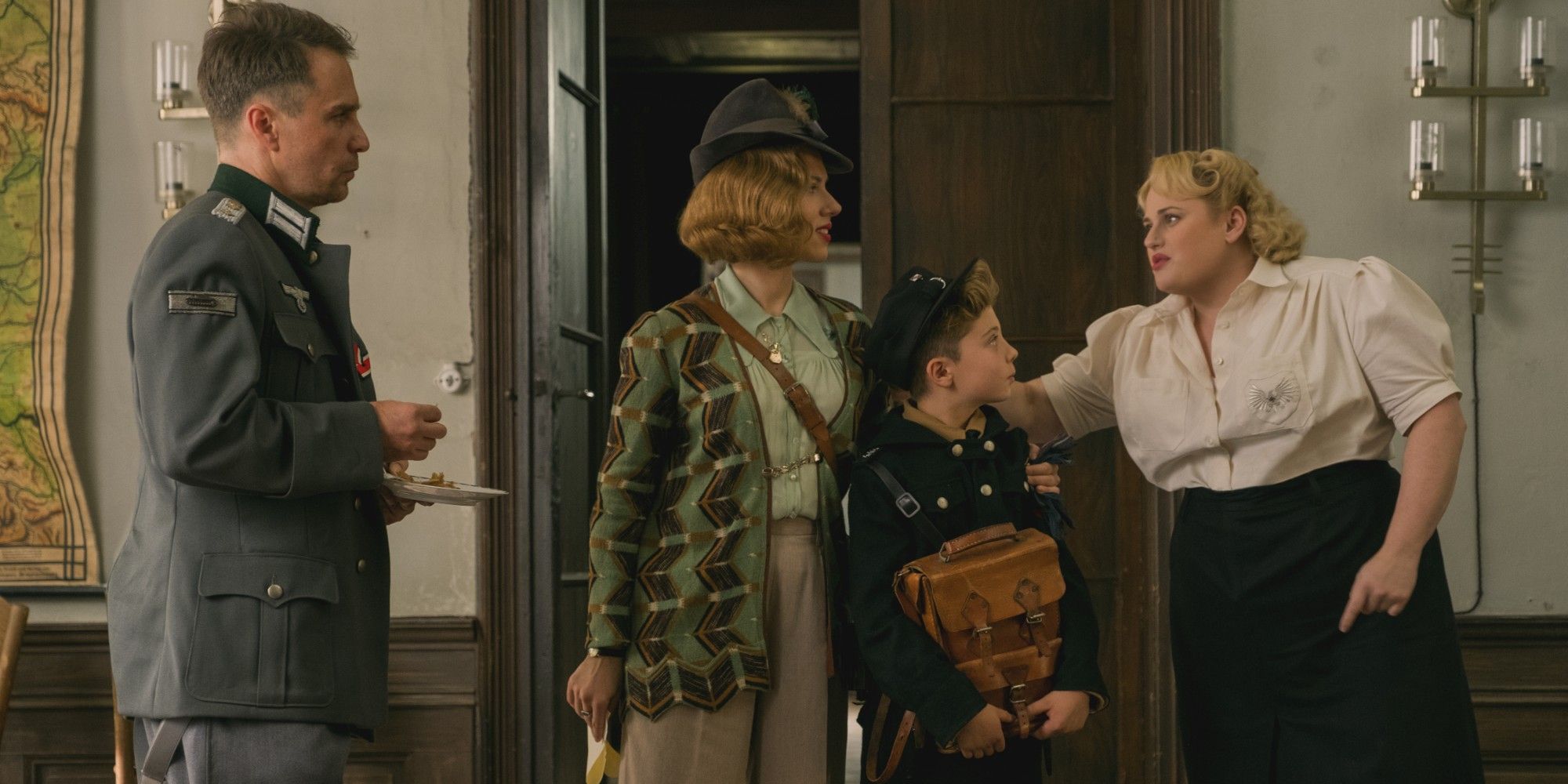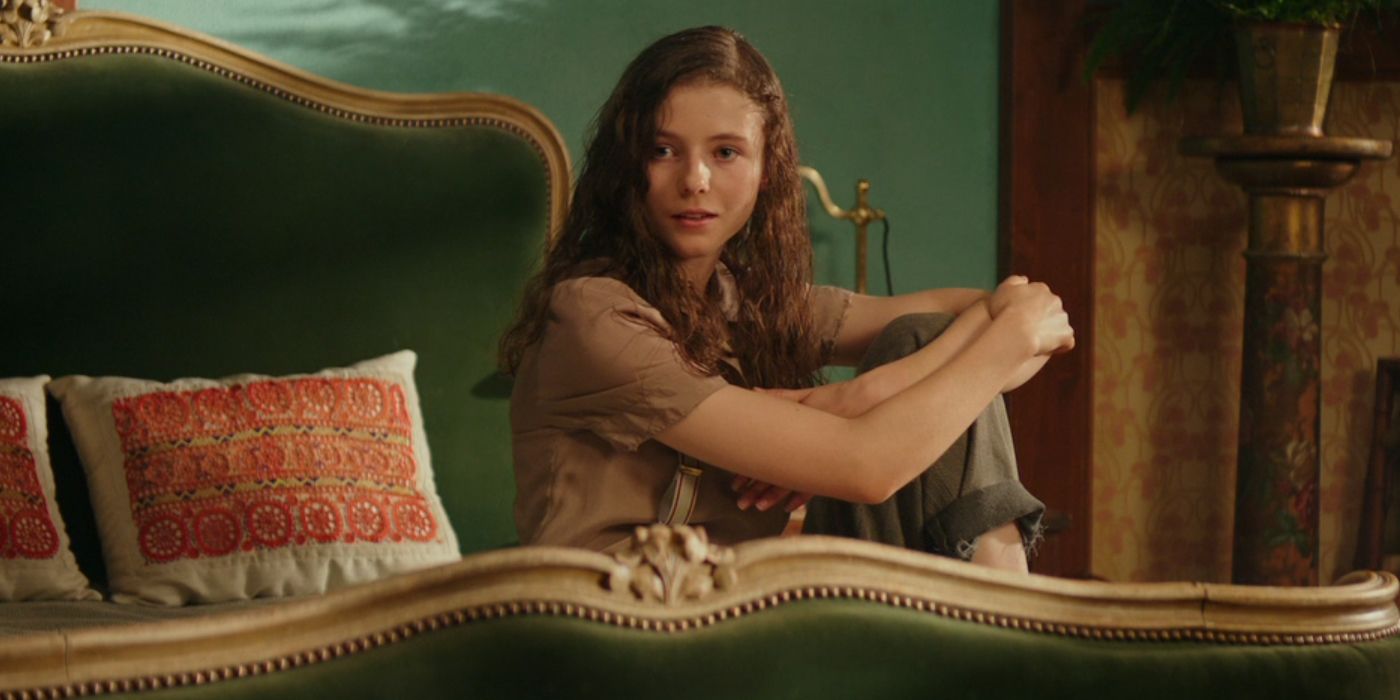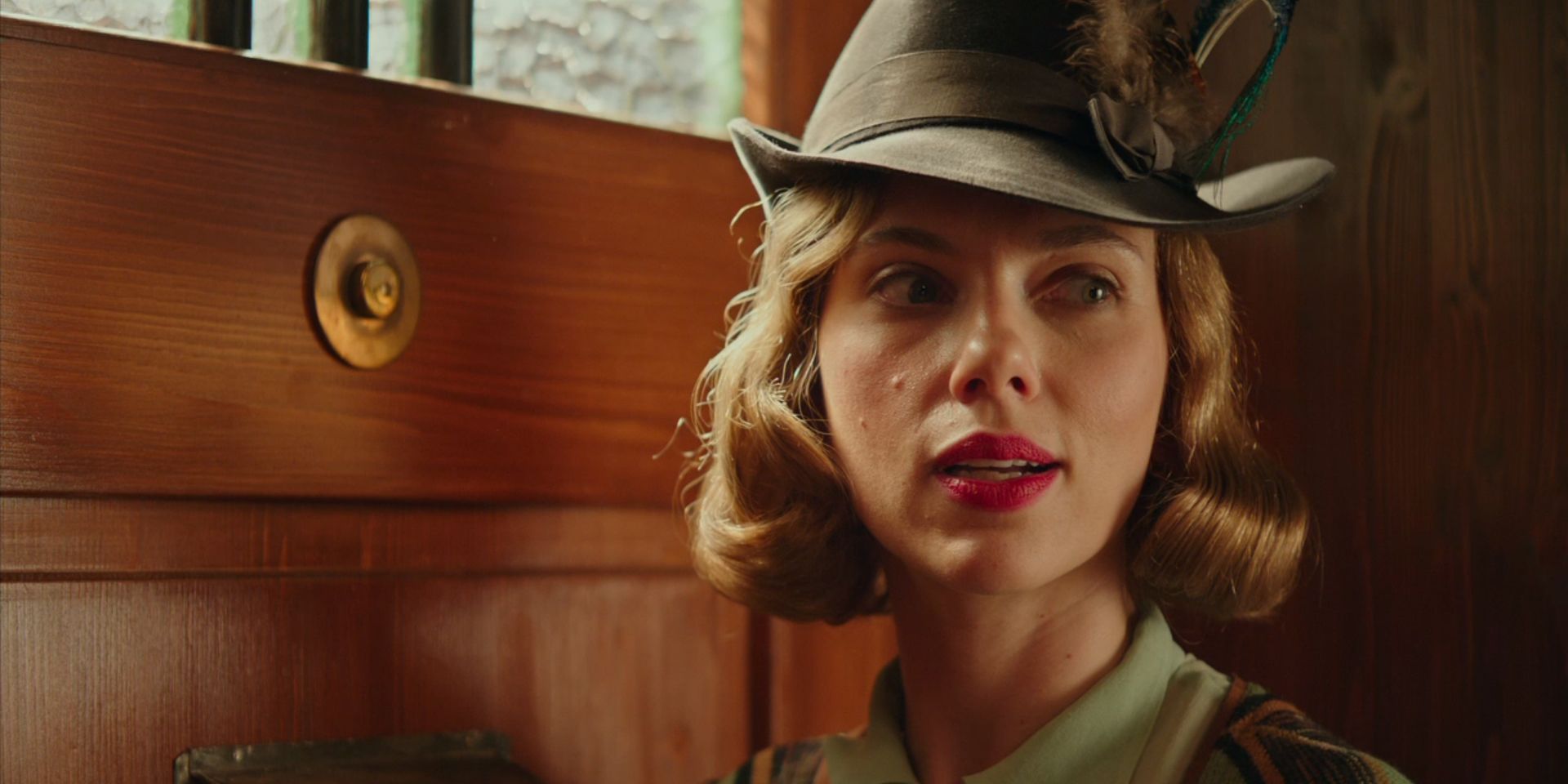In what is a huge gamble in today’s societal landscape, Jojo Rabbit is a film about a boy who has Hitler as an imaginary friend, The story progresses further with Hitler's ideology instilled in the boy's upbringing. As you can imagine, the premise has been met with offended responses from many.
However, we believe that Jojo Rabbit should be seen in the manner that director Taika Waititi — you know, the guy who's at the helm of Thor: Love and Thunder — intended, and that Jojo Rabbit has way more good intentions than it is given credit for. Still, that doesn’t mean the controversial points shouldn’t be acknowledged, which is why we’re bringing you these five things by which Jojo Rabbit can be considered offensive, and five why it should be seen as a hilarious effort from Taika Waititi.
Offensive: Making Hitler Seem Relatable
Jojo Rabbit's pacing goes down to a slow burn, which means you see the manifestation of Hitler show his more vicious tendencies as the film goes on. While his hate-filled ideology is present right from the start, he’s presented in a more friendly light upon first appearance.
And yes, that needed to happen; otherwise the whole “imaginary friend” angle wouldn’t have worked if Hitler was shown as a bad guy from the start. But there’s no hiding that he was shown as a relatable figure for the main character.
Hilarious: Making Hitler Come Across Like A Fool
It becomes clear that Jojo is projecting his brainwashed ideology into what he thinks Hitler is like. However, once the initially friendly Hitler angle sets in, he’s portrayed as a total idiot for the rest of his time onscreen.
This is how you know that the point of depicting Hitler is to show how messed up the whole Nazi manner of thinking was in the first place. Everything this Hitler does represents how much of a clown the real man was, and it’s funny to see that play out.
Offensive: Making Light Of A Sensitive Topic
In all honesty, comedy shouldn’t really have any boundaries and should be perceived for the sake of hilarity. However, that doesn’t change the fact that this backdrop is more personal for some than for others. After all, those who didn’t have families go through those harrowing times won’t have any clue how awful it was.
It’s only through the recollection of the elder people who lived through these times that one knows truly the struggle they went through, but you can also get a sense of it by reading the pages of history. Following this, the film's backdrop doesn’t seem nearly as funny when you consider how sensitive it is for the people that suffered.
Hilarious: Taika Waititi's Comedic Mastery
One should always give the benefit of the doubt to Taika Waititi, who can easily be counted on to deliver a hilarious film and interesting characters. If you’re not sure about that, check out all his previous works, from What We Do in the Shadows to Hunt for the Wilderpeople, and you’ll see how he’s never insensitive; he finds the lighter moments in heavy topics.
Jojo Rabbit continues this trend for Waititi, where you can trust on his brand of comedy and know there’s no malicious intent involved. Even the promotion for the film was genius, where Waititi used one of the “Hitler Reacts” memes on YouTube to showcase how Jojo Rabbit’s comedy would further his style of breezy comedy.
Offensive: Not Diving Completely Into Real Issues
A majority of the criticism, even from those who enjoyed the film, was that it didn’t fully showcase Germany's grisly past. It was likely you knew what was going on, and the film relied on your knowledge of history to shape out the backdrop.
However, that doesn’t mean everybody is well-versed in history, meaning that a fair bit of viewers didn’t realize that the times of World War II were way more awful than the film portrayed them to be. For this reason, we can see why some people might be offended thinking Jojo Rabbit tried to be more funny than educational where needed.
Hilarious: Innocent Protagonist
Look, you can be angry all you want over whatever you see onscreen, but you also need to remember that we’re watching things from the point of view of a child. Isn’t it a universal truth that our ideas about how life was supposed to be when we were kids seem hilarious in hindsight?
It is because of this that Jojo Rabbit’s protagonist comes across as funny. The boy is so innocent and naive that for him, the world is just a big ball of optimism. Looking at things with the innocence of a child brings in a whole new angle from which you can watch the movie.
Offensive: Nazis Are Portrayed Mainly As Comedic
Along with the criticism that Jojo Rabbit didn’t portray the awful side of the times completely, there’s also the complaint that Nazis were very one-dimensional, in that they were portrayed as being comedic at all times. This makes them seem like much less of a threat than they were.
From the perception of some people, it might seem as if Jojo and his family were just experiencing bad luck rather than the Nazis committing horrific acts. Had the film made them out to be brutal to a certain extent rather than being funny almost the whole time, then perhaps this point wouldn’t have been so striking.
Hilarious: A Comedic Take On Previously Broached Topic
Other films, like The Boy in the Striped Pajamas, have shown a bleak outlook on the events of the war and its effect on children, but Jojo Rabbit would’ve lost its identity had it played out in similar fashion. Waititi’s style of using comedy is hidden genius in the sense thatthis method actually piques interest over the subject matter.
You can look toward Inglourious Basterds, a huge critical success mainly due to it being a subversion of the usual style of films we’ve seen in this genre; Jojo Rabbit is like a lighter-on-the-violence version of that movie in terms of presentation. It's the kind of out-of-the-box thinking in a Taika Waititi film that we've come to expect.
Offensive: The Subject Matter Isn't For The Current Audience
The fact of the matter is that there are many people today who look for things to be offensive by rather than trying to understand their meaning. Had Jojo Rabbit been released about a decade ago, then there simply wouldn’t have been much controversy to begin with.
However, one must consider the audience these days before releasing a movie, and for this reason perhaps Jojo Rabbit’s angle wasn’t the best one to showcase. Offended people do bring up good points on occasion, and some of the issues of the film such as the previous ones we’ve mentioned could’ve been handled better than they were.
Hilarious: It's Meant To Be Seen With A Comedic Lens
Finally, the entire point of the film can be communicated by informing viewers that it’s supposed to be seen as a comedy and not a faithful representation of history. Sure, it is a sensitive topic, but at no point did Jojo Rabbit ever promote Hitler as a good guy, nor did the film ever attempt to picture the suffering of the people as funny.
Instead, it was the point of view of the boy that we’re supposed to focus on, which instantly makes the film out to be the comedy that Taika Waititi wants you to see. By putting on your funny glasses; you’ll appreciate the comedic points for what they are.

